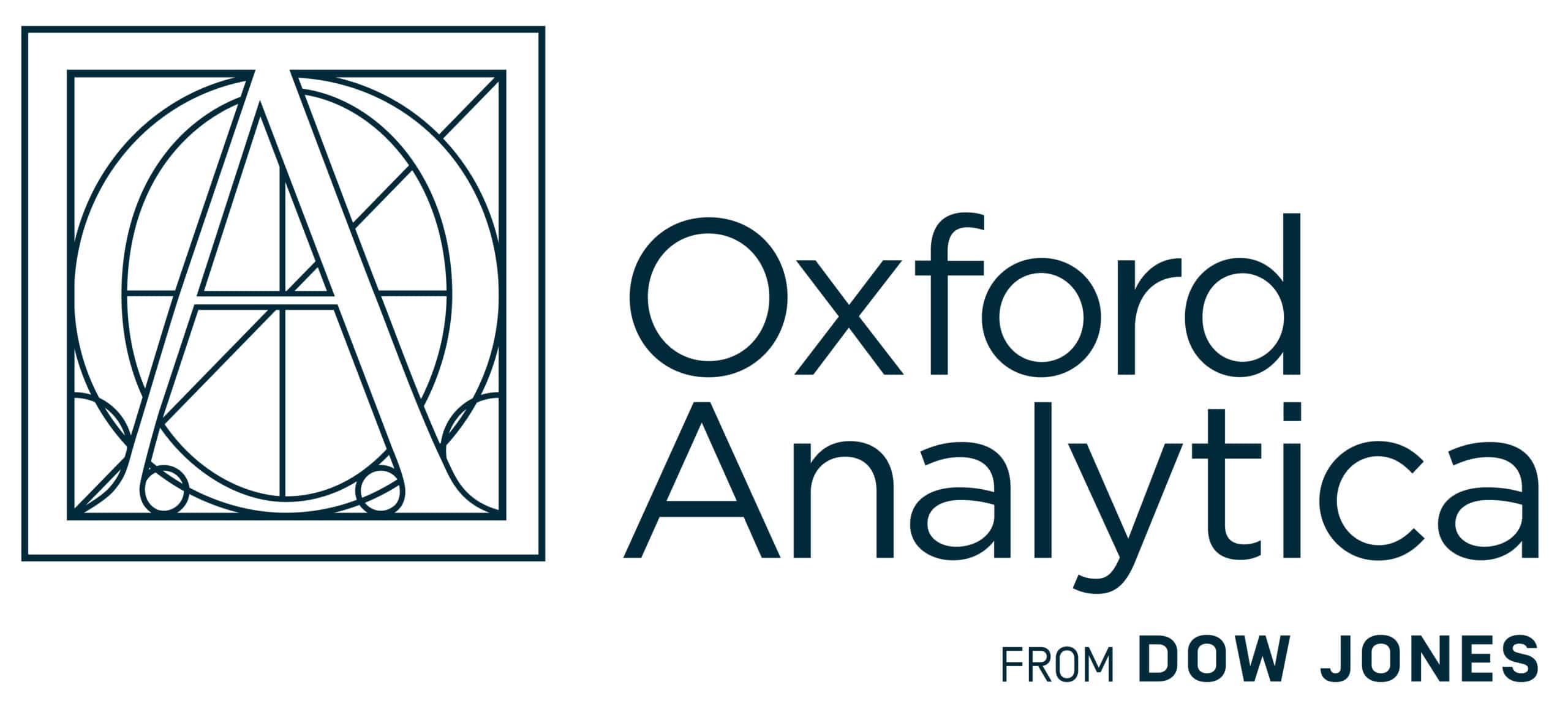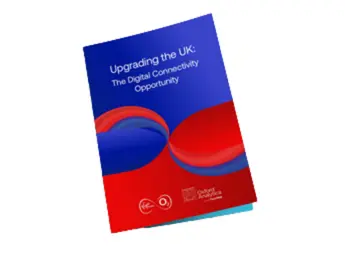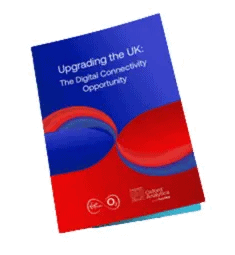 Oxford Analytica produces first-ever Digital Connectivity Index
Oxford Analytica produces first-ever Digital Connectivity Index
Following the merger between two major telecommunications firms, Virgin Media and O2, Oxford Analytica partnered with Virgin Media O2’s PR firm Portland Communications to produce the first-ever Digital Connectivity Index. The report featuring full details of the Index, ‘Upgrading the UK: The Digital Connectivity Opportunity’, is a robust, third-party economic case for the benefits of investing in digital connectivity in the UK.
Purpose of the Index
In the wake of its merger in June 2021, Virgin Media O2 wanted to clarify its new position in the market as a combined entity, as well as set out its purpose in working with Government and regulators to build the digital infrastructure the UK needs to secure future economic growth.
The combined telecommunications company has planned investment of at least £10bn over the next five years to rollout gigabit speeds, expand the broadband network and bring 5G to more parts of the country. Portland Communications was seeking a way for its client to clearly communicate the benefits of such investment, not only in improving digital connectivity across the UK but in broader terms of supporting the country’s economic growth.
The timing was key as the report was to be published off the back of major change in UK society. The Covid-19 pandemic resulted in many more people working remotely and enjoying digital entertainment. This shift, which has lasting implications as companies continue to mix office and home-working, has increased the importance of the telecoms industry and of digital connectivity to both public and business communities. This was a vital time for Virgin Media O2 to lay out the path ahead.
The solution
In response, Oxford Analytica’s Advisory team worked closely with Portland Communications to understand the impacts of digital connectivity of UK households and businesses, linking economic modelling, advanced analytics and survey data from households and businesses to objectively determine the importance of digital connectivity to the UK’s future.
The result was the Digital Connectivity Index, the very first of its kind, bringing together thousands of data sets from countries across the Organisation for Economic Co-operation and Development (OECD). By collating data on broadband speed, fixed and mobile broadband, together with calculations on additional GDP and employment from 2021-2026, the Oxford Analytica team was able to produce single, comparable scores related to connectivity and the associated economic impacts.
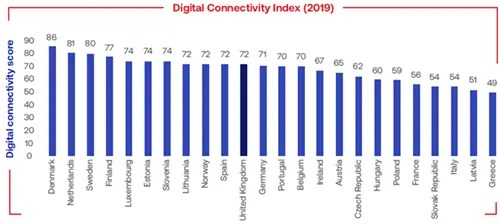
In terms of the current quality of connectivity infrastructure, the Digital Connectivity Index ranked the UK as joint eighth out of 24 OECD countries – well into the top half of countries scored and just ahead of Germany, Portugal and Ireland. Other key Index findings included:
- Investment in UK digital infrastructure could create 510,000 new jobs and add £70 billion in extra GDP between now and 2026.
- More than 85% of new jobs created could be located outside of London in a boost for UK regions.
- A clear link between investment in digital connectivity and national economic growth. The UK’s GDP growth rate would be almost a full percentage point higher (0.88) by 2026.
- Evidence of a clear opportunity for the UK to become global leader in digital connectivity in 2022.
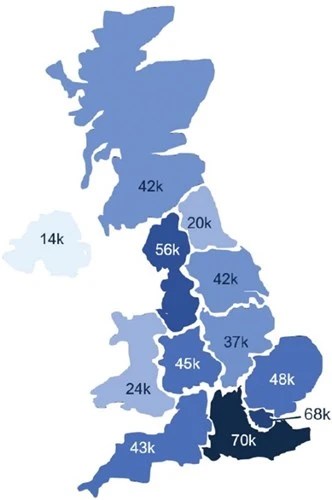
The Index revealed that every UK region could benefit from investment: 56,000 new jobs in the Northwest; and an additional 82,000 and 42,000 in the Midlands and Scotland respectively. Small and medium sized businesses could be amongst the main winners, with data suggesting they would take most of the new roles. The Index showed regional economies getting huge boosts too, with gains worth £4.65bn to Yorkshire, £2.46bn to Wales, £5.19bn to the Southwest and £1.61bn to Northern Ireland.
Our research also supported the case for improving national digital equality by bridging the digital divide. The report, for example, showed that people living in more deprived areas of the country, in rural areas and lower income households are most at risk of digital exclusion. The findings strengthen the need for nationwide digital infrastructure investment and help underpin Virgin Media O2’s messaging around its digital poverty initiatives including its National Databank, providing free mobile data to people in need.
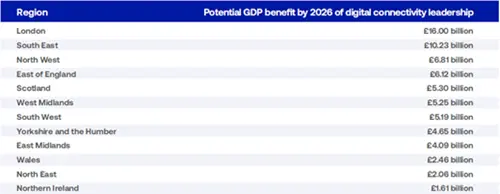
Overall, the project took eight weeks to complete from initial scoping meetings to publication of the report in November 2021. This included time for our client to explore unexpected and interesting findings.
Outcome
Oxford Analytica’s figures and analysis, as shown in the Index, helped Virgin Media O2 communicate its mission to invest and upgrade its fixed and mobile networks to help accelerate UK growth. In addition, the Index provided headline figures that were published in the national and trade press, helping to frame the benefits of the Virgin Media O2 to customers, regulators and government.
